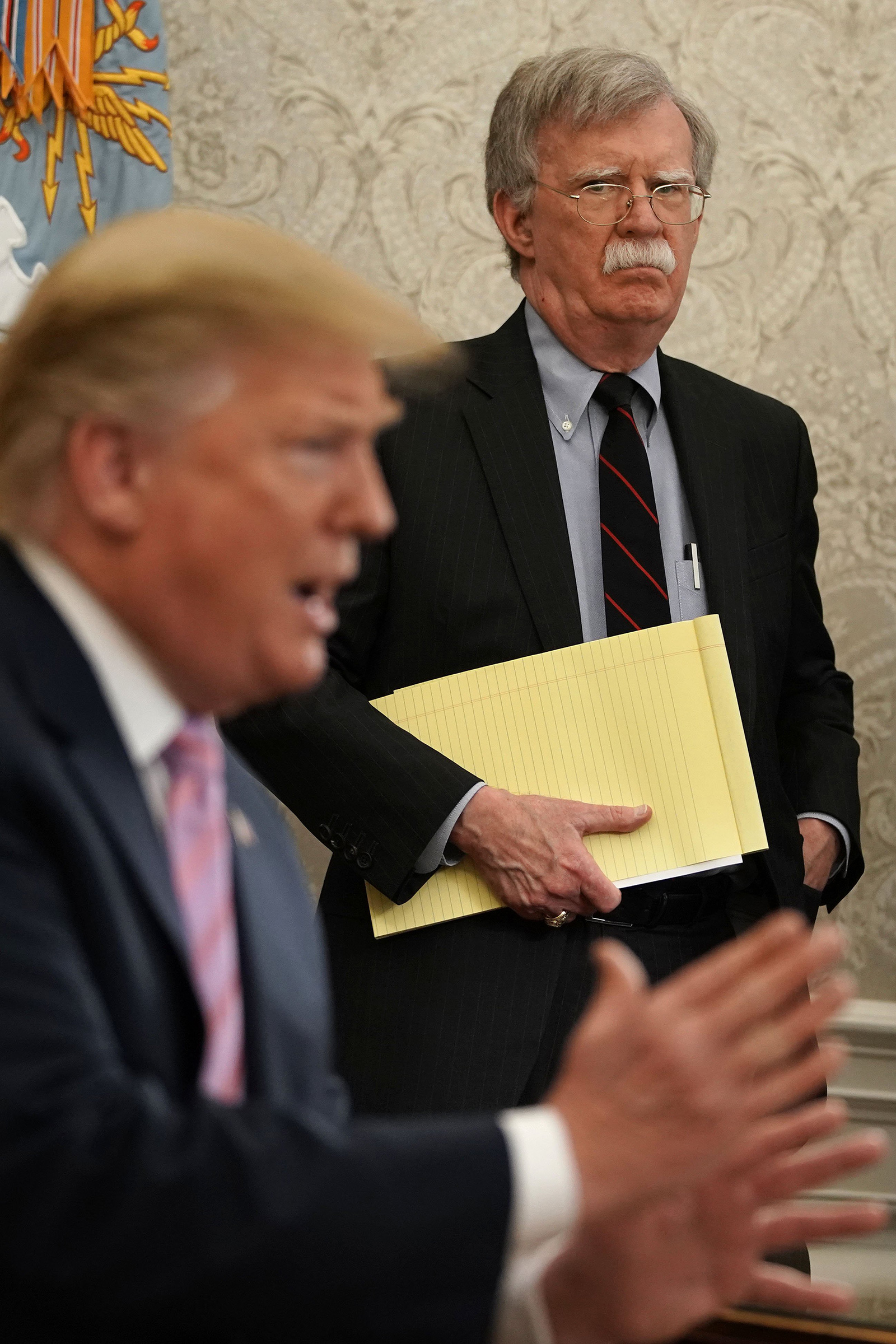
John Bolton is nobody’s idea of a leftist. For the better part of three decades, Donald Trump’s former National Security Adviser has been a leading voice for hawkish American foreign policy, arguing for military intervention, railing against treaties and personifying the hard right wing of the Republican Party. So it was a sign of just how fraught Trump’s impeachment trial had become in its second week when the President’s defenders on cable TV began labeling Bolton a “tool for the left” and suggested he was selling out decades of unwavering ideology for personal enrichment.
The short version of how Bolton became the Trumpists’ bête noire is simple. After months of hinting that he had information to share, Bolton announced on Jan. 6 that he would testify at Trump’s Senate impeachment trial if subpoenaed, bucking the White House ban on cooperation. Then, on Jan. 26, the New York Times revealed that Bolton, in his upcoming book, The Room Where It Happened, says Trump personally told him that he was withholding military aid to Ukraine until the country agreed to cooperate in alleging wrongdoing by his Democratic rivals. Suddenly, Bolton was poised to provide eyewitness testimony to the central charge in the Democrats’ first article of impeachment. As his book’s title wryly notes, he was in the room.
In the arc of the Trump presidency, Bolton now represents the high-water mark in loyalty tests for Trump’s followers in Congress. As Trump has hired, fired and humiliated some of the most established GOP national-security figures, many Republicans in the Senate have tried to remain silent, fearing the political cost of crossing a President with more than 80% support in the party. Now, as jurors in the impeachment trial that could decide the fate of the Trump presidency and their own political futures, those same Republicans were being forced to take a side: believe Donald Trump or John Bolton.
The Bolton leak came at a bad moment for the President, just as his defense lawyers were arguing his side in the Senate trial. Until then, Trump had seemed on course for a quick acquittal, and his legal team all but ignored Bolton’s allegation as they took the floor of the chamber the day after his account became public. But outside the Senate chamber the news threw Republicans for a loop.
Senate majority leader Mitch McConnell and other Republican leaders had tried to pre-empt this scenario, nursing a whisper campaign against Bolton’s credibility that suggested he was turning on Trump because he had been fired last fall and was trying to goose book sales by offering testimony. McConnell and company urged a united front to block any witnesses at the trial, but at a meeting of the GOP conference on Jan. 28, the normally in-control McConnell admitted he didn’t have the votes to block witnesses.
The result has been a barely concealed war between those who want to allow new evidence and those who put defending Trump first. When Senator Mitt Romney of Utah argued that Bolton clearly had “some information that may be relevant” and signaled that he was open to Bolton’s testimony, he was publicly slammed by his colleague Senator Kelly Loeffler for wanting to “appease the left.” The recently appointed Georgia Republican had supported Romney’s 2012 run, but Loeffler’s seat is up for election in November, and she could face a Trump-backed challenger.
Romney was not alone. Susan Collins, the Maine moderate, had said she might want to hear from witnesses, as had others, and the Democrats needed only four Republicans to force testimony. But the danger for the GOP was greater than just Bolton’s revelations. Democrats want to hear from other key players, including White House chief of staff Mick Mulvaney, who suggested during an Oct. 17 press conference that Trump had offered a quid pro quo to Ukraine. Democrats also had expressed interest in hearing from two other officials involved in holding up the $390 million in congressionally mandated military aid.
The push to win four Republican votes opened up another potential vein of damaging evidence for Democrats to mine in the trial: documents. House impeachment managers had mentioned multiple White House emails related to the holdup of military aid. These documents, which the White House refused to hand over, could prove what more than a dozen officials, Bolton now among them, have said for months: that Trump leveraged the economic and military might of the U.S. to aid his own re-election. That, Democrats argue, is the heart of their charge of abuses of power and the reason Trump must be removed from office.
Democrats would need 20 Republicans to make that happen, and as of Jan. 29 that remained a most remote possibility. But Bolton’s account has raised the bar for the GOP’s loyalty test in the era of Trump. Bolton served in the administrations of Ronald Reagan and George W. Bush, rising to be U.N. ambassador, and ultimately spent 17 months in Trump’s White House. If they refuse to hear from Bolton, Republican Senators would be on the record in a way many had hoped to avoid.
More Must-Reads from TIME
- Cybersecurity Experts Are Sounding the Alarm on DOGE
- Meet the 2025 Women of the Year
- The Harsh Truth About Disability Inclusion
- Why Do More Young Adults Have Cancer?
- Colman Domingo Leads With Radical Love
- How to Get Better at Doing Things Alone
- Michelle Zauner Stares Down the Darkness
Write to Vera Bergengruen at vera.bergengruen@time.com